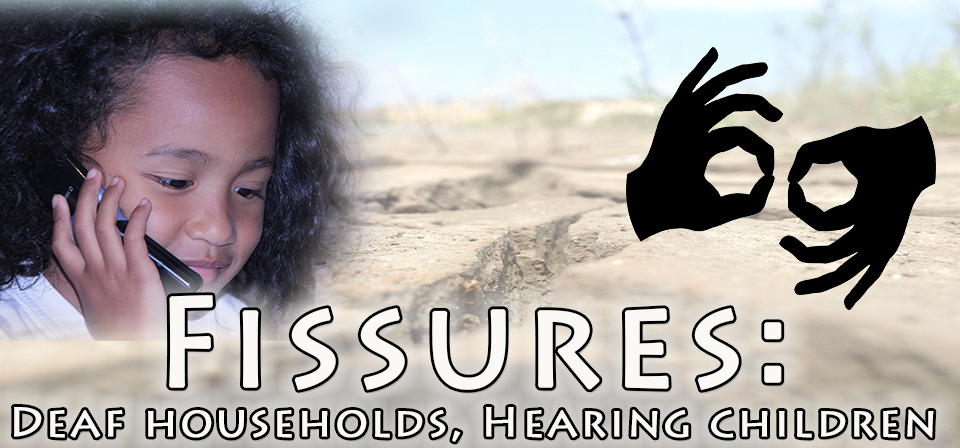Deaf Households, Hearing Children
Part of our Fissures series.
Just as more than 90% of deaf children are born to hearing households, the reverse is true: more than 90% of Deaf-parent households have hearing children. These kids have an amazing advantage – two native languages! They also have an interesting challenge – two worlds vying for their participation.
Children of Deaf Adults, often referred to as CoDAs, learn ASL organically from signing parents. If they also hear, they learn English from grandparents, aunts & uncles, and siblings. They also learn, without intent, how the hearing family members regard their parents. Side comments are no longer privately mumbled and dismissed into the cosmos, whether those statements are admiration or frustration.
Kids test their parents, it’s a thing. But hearing children of Deaf parents learn very quickly how to do an “end-run” around guidelines and boundaries that their parents set up. That’s made all the easier if primary adults seem to honor the ability to hear above the role of parent. It’s an observable phenomenon.
Also observable, and a bit less common in today’s generations, is the tendency for the child to be the interpreter for their parents. Imagine taking your seven year old to a doctor’s appointment – YOUR doctor’s appointment. Symptoms, test results, next steps, life expectancy…these aren’t for young minds to process and cope with on-the-spot. Thankfully, times have changed with the ADA and professional interpreters.
On the fun side, imagine your nine year old gets to interpret the parent-teacher conference… hope that kid’s honest!!
You can see, can’t you, where the stress points and frictions would show up? Many of them are hidden within the heart of a child who loves their parents and first language as well as the siren call of a very audio-centric world. It’s hard to maintain loyalties in two directions, or embrace two full identities with equal vigor.
On the other hand, what better candidate for becoming an excellent interpreter than someone who has been bilingual all their lives? Many CoDAs have the skills for a specialized career before they leave High School. Whether that’s embraced as a golden opportunity or resented as a community expectation is a matter of how the family as a whole nurtures the unique individuals around them.
